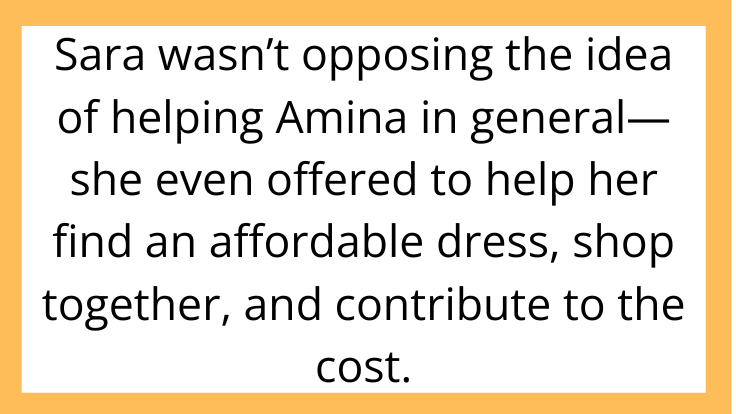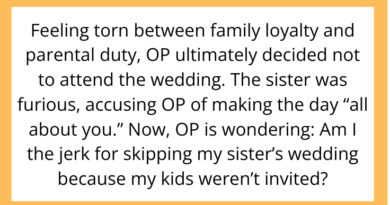AITAH for Refusing to Give My Wedding Dress to My Sister for Her Own Wedding?
Weddings often bring out the best—and worst—in family dynamics. In today’s AITAH drama, we explore a situation that has stirred up intense reactions online: a bride who treasures her gown is being pressured to give it up for someone else’s big day.
Is holding onto a sentimental dress selfish, or is it unfair to expect someone to part with their memories?
Let’s unpack the story.
The Story: A Dress, A Demand, and A Divided Family
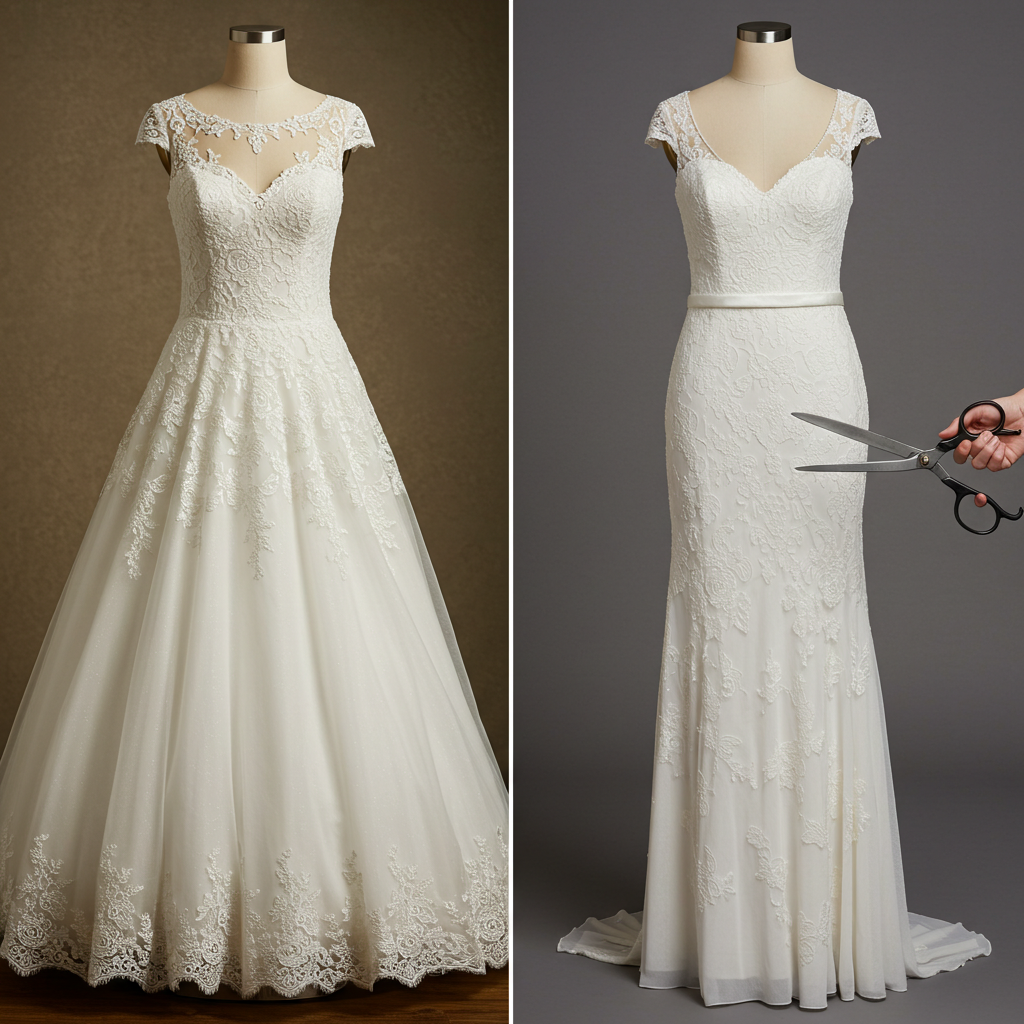
A 27-year-old woman—we’ll call her Sara—shared her dilemma on Reddit’s r/AITAH community. Married for two years, she still treasures her wedding dress. It’s not just fabric to her—it’s a symbol of a day that meant everything. Her dress was custom-made, elegant, and expensive. She had it preserved and stored with care, hoping one day maybe a daughter or niece might wear it.
Recently, Sara’s younger sister, Amina (23), got engaged. Amina and her fiancé are planning a low-budget wedding and asked if she could borrow Sara’s dress.
But “borrow” wasn’t quite accurate.
“She said she wants to make alterations to fit her style,” Sara wrote. “She’d dye it, cut it, and change the neckline. She wants to keep it as her own.”
Sara said no.
Amina was devastated—and furious. She called Sara “selfish” and accused her of not supporting her during one of the most important times of her life.
Now the family is split. Their mother sides with Amina and says Sara “already had her moment,” so she should “pass it on.”
Feeling hurt and pressured, Sara turned to Reddit to ask: Am I the villain for saying no to giving my sister my wedding dress?
Sentiment vs. Sacrifice: Is It Just a Dress?
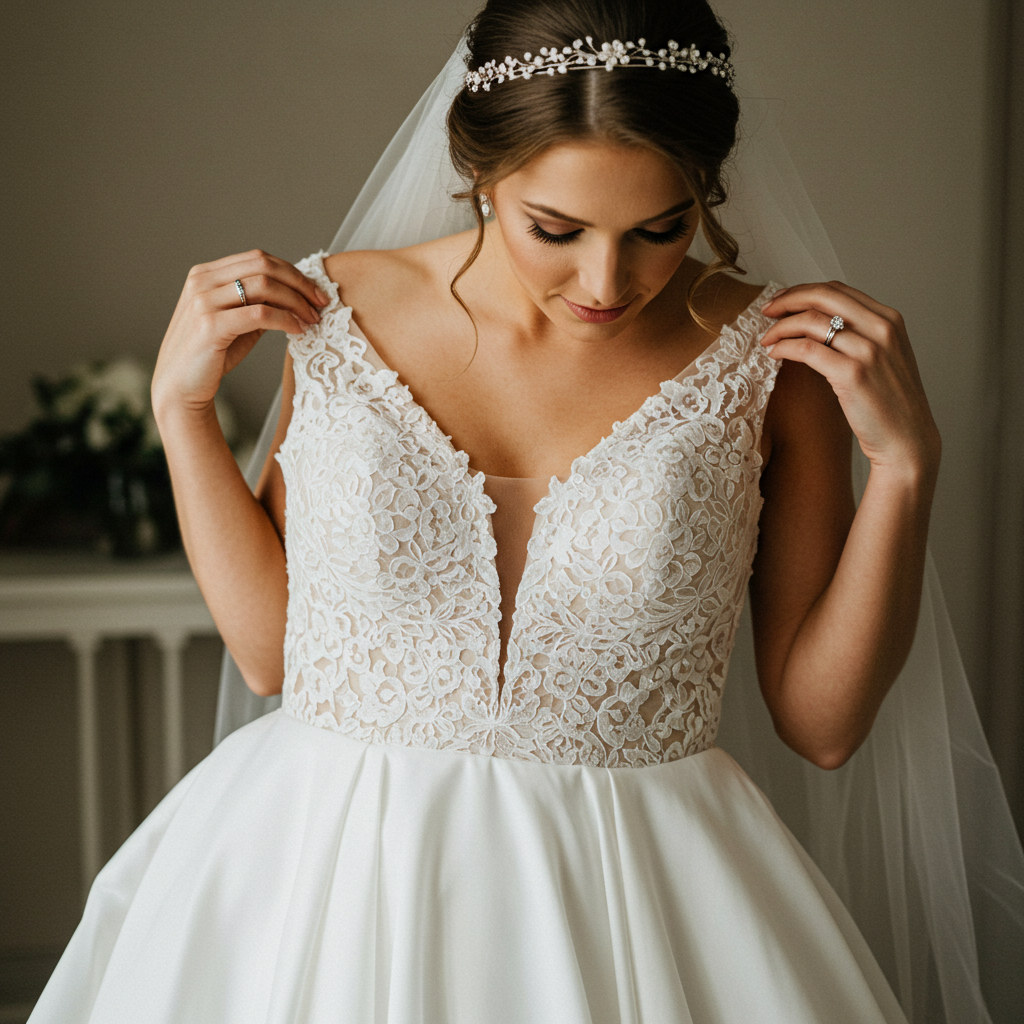
Why Sara Said No
Sara’s dress isn’t just an outfit—it’s a memory stitched in silk. She spent months designing it and paid thousands. More than that, it represents a deeply personal experience she wants to preserve. Giving it away, especially with major alterations, would mean losing a part of her story.
Sara wasn’t opposing the idea of helping Amina in general—she even offered to help her find an affordable dress, shop together, and contribute to the cost.
But her own gown? That was off-limits.
Why Amina Feels Hurt
On Amina’s side, the request came from a place of love and admiration. She’s always looked up to her older sister and wanted to wear something meaningful on her wedding day. In her view, borrowing the dress was symbolic—part of a sisterly bond.
She argued that weddings are about family, and Sara’s refusal made her feel excluded and unsupported. For Amina, practicality and sentiment blended into a single request.
Reddit Responds: Is the Dress More Important Than the Relationship?

The Reddit community had strong opinions—and the majority rallied behind Sara.
“It’s YOUR dress. Your sister doesn’t get to guilt you into giving it up,” one user commented. “Especially not to dye and alter it.”
Others emphasized the permanent nature of Amina’s plan.
“She’s not borrowing the dress. She’s claiming and changing it. That’s a big ask.”
But a few users empathized with Amina’s position.
“Family heirlooms only exist if they’re shared,” a user pointed out. “Sara could’ve considered letting her wear it as-is and then preserve it again.”
Still, the consensus was clear: asking for the dress was one thing—demanding permanent changes was another.
The Bigger Issue: Entitlement or Emotional Oversight?
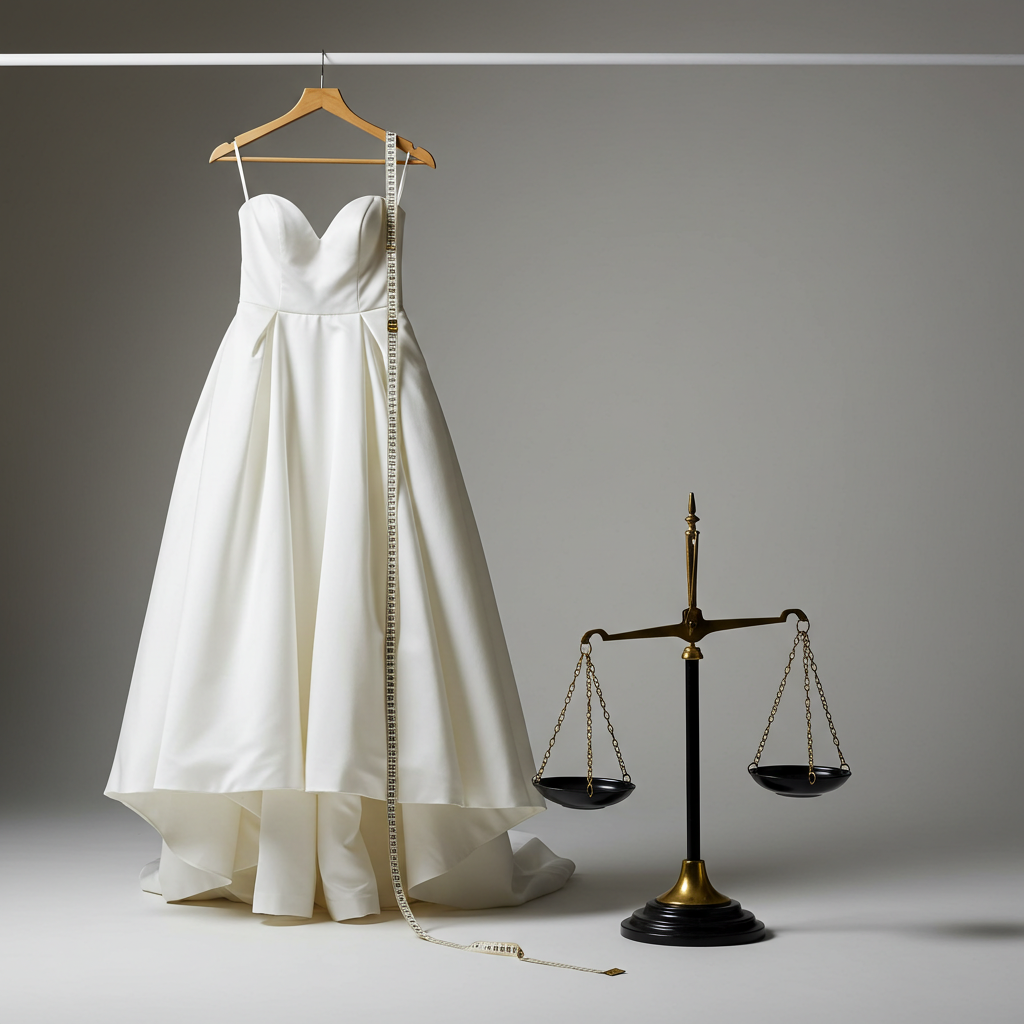
Boundaries and Sentimental Value
This AITAH scenario raises a broader question about personal boundaries and emotional items. It’s one thing to lend a necklace or a pair of shoes—but wedding dresses often carry intense emotional weight. Expecting someone to part with such a personal item, especially for permanent alteration, crosses a line for many.
It also reveals how family expectations can clash with personal values. Just because two people share a last name doesn’t mean they see memories the same way.
Alternatives That Could’ve Worked
-
Let Amina wear the dress as-is, with the agreement it would be returned and restored.
-
Offer a contribution toward buying or customizing a new dress.
-
Repurpose a small part (like lace from the veil) for something “borrowed” or “blue.”
Compromise is possible—but it requires respect on both sides.
The Takeaway: Saying No Doesn’t Make You Heartless
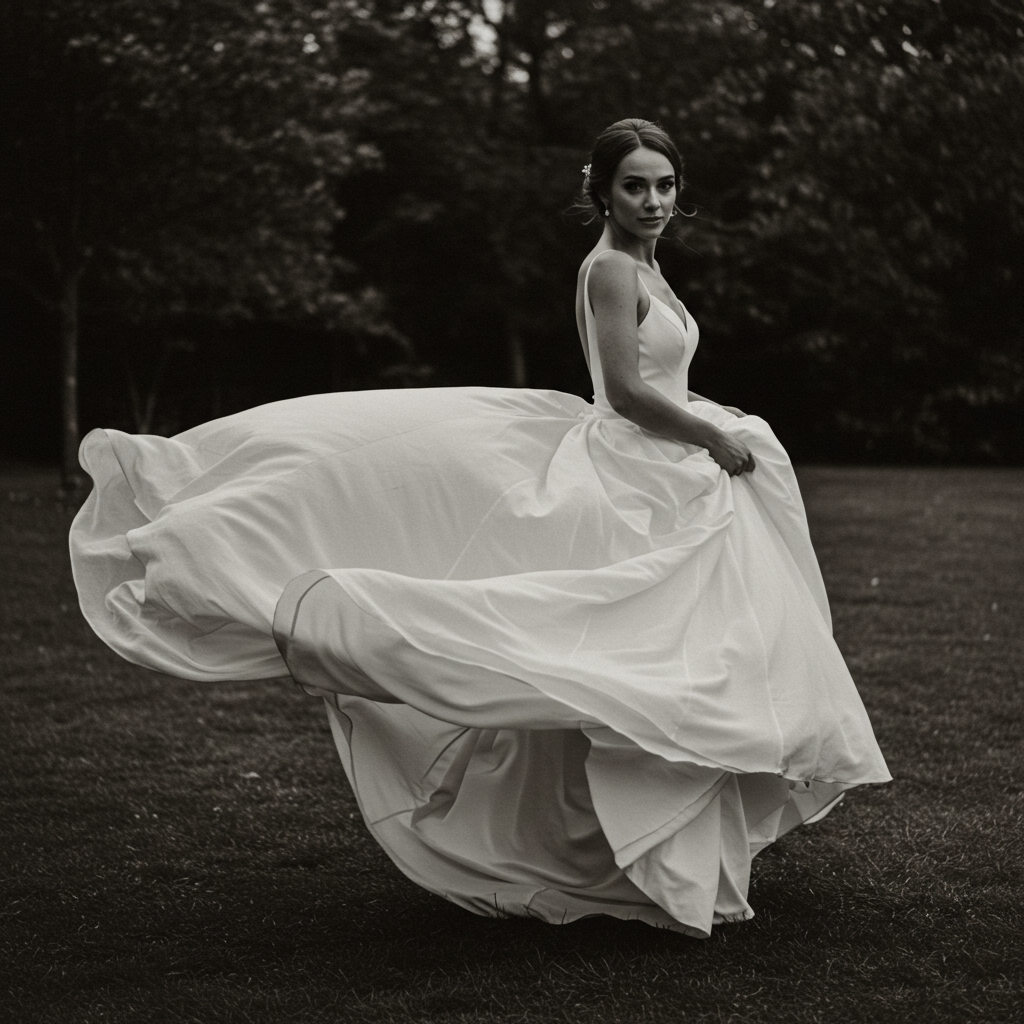
Sara isn’t heartless for saying no. She’s protective of something meaningful—and that’s okay. A wedding dress may be a material item, but to many, it holds memories, identity, and history.
Supporting family doesn’t always mean giving in. Sometimes, it means setting clear, respectful boundaries.
